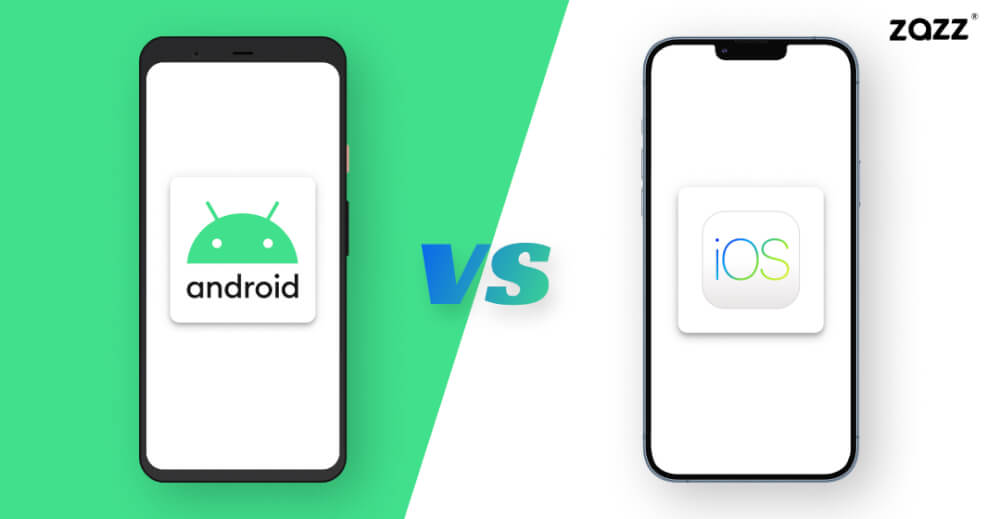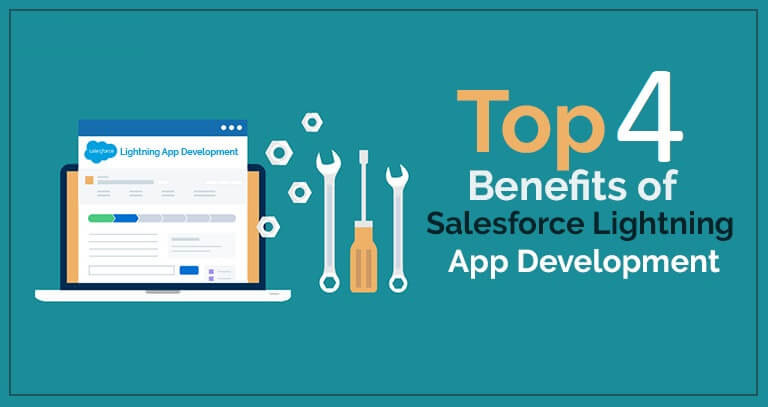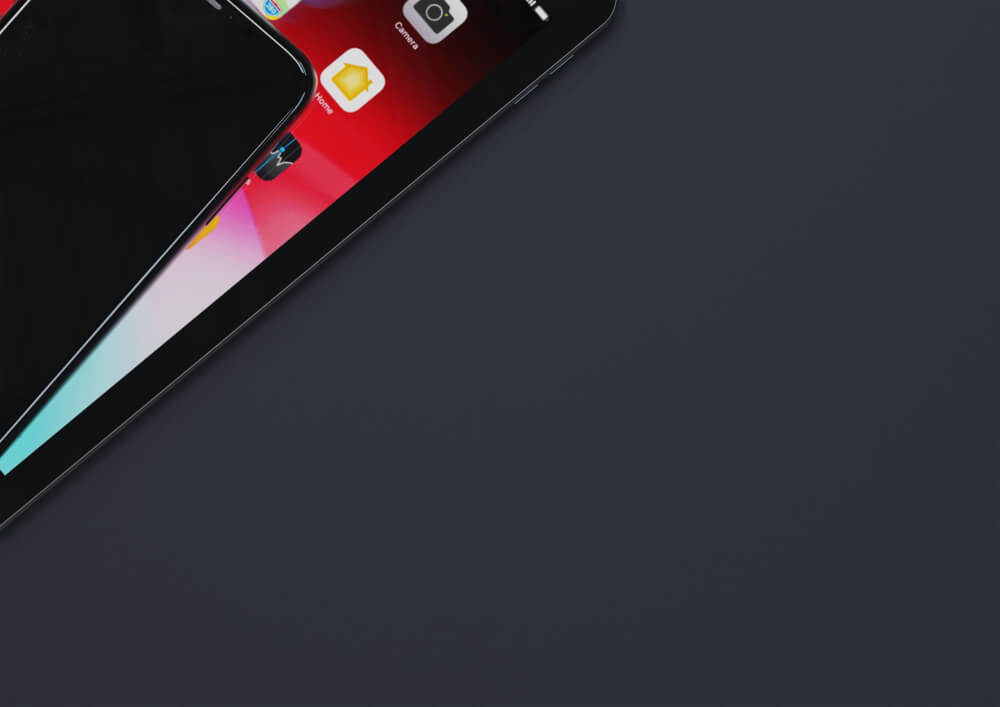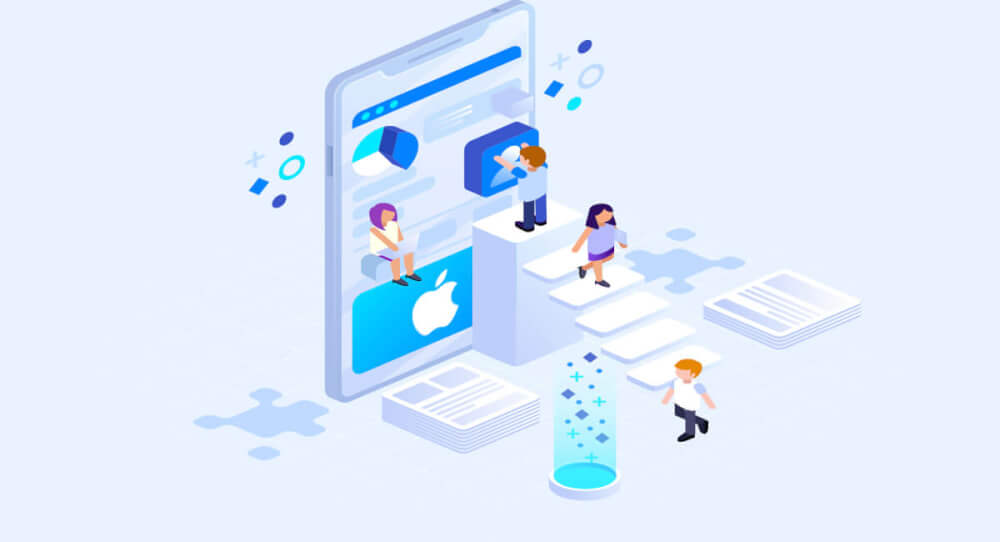Mobile application development is one of the fastest-growing areas of software production. Since the number of mobile apps skyrocketed a few years ago, the demand for fast, easy-to-use apps has increased. Mobile app development has sparked a lot of interest as businesses were forced to shift them to the online path quickly and completely after the COVID-19 pandemic. In this chaotic digital market, smart entrepreneurs looking to stay connected with their clients can’t ignore the power of mobile apps. The same strategy applies to startups that prefer developing mobile-first versions of their products while using landing pages and websites as marketing tools.
However, before contacting a mobile app development company for a quote, you need to decide which operating system you’re going to use, whether it’s iOS or Android. To solve the iOS vs Android dilemma, the first thing you need to do is identify your application’s target market. Just in case, learn about the differences in technology stacks of both platforms, the cost of each application, and how long the project will take. As a leading Android and iOS app development company, we know that both these disruptive platforms are absolute leaders in the tech space since they provide robust and incredible development options, making your business processes more streamlined.
In this blog, we’ve highlighted several factors that can impact a stakeholders’ decision when it comes to picking between iOS and Android with our years of experience in creating projects for both Android and iOS. Let’s dig deeper!
Mobile Application Development: Android or iOS?
-
Future Prospects
Android devices currently account for 70.74% of the global market share, so the future of Android app development is very bright. IOS devices are getting cheaper and more popular due to their high performance and constant innovation. In general, the future choice of iOS or Android app development is inappropriate. Because both platforms will continue to be popular for years to come.
-
Revenue
Android is the absolute leader in terms of market share, but iOS users have a higher lifetime value (LTV). This means these customers are more likely to use their in-app money to purchase additional content rather than a one-time source of income and become a permanent source of income. Android vs. There is no clear winner in the iOS development revenue race, but experts predict that total in-app users spend on the iOS App Store will reach more than $60 billion next year. If you plan to create a retail app or app that offers a wide range of additional content for users to purchase, iOS will provide more opportunities to monetize.
-
Target Audience
To determine your target audience, you should first consider the features planned for your app. However, there are some differences between iOS and Android users, which you can use to make decisions. Statistics show that Android app development Company may be more successful if your target audience is primarily in the tech or healthcare sectors. The iPhone is more popular with business professionals, managers, and sales professionals. Also, people who prefer iPhones, on average, have advanced degrees, tend to keep up with the latest tech trends, and have higher household incomes.
-
Budget for Development and Deadlines
Currently, iOS is still the winner in the competition for iOS vs Android in terms of development time and budget. A coding language that uses both platforms is becoming an important factor. Android relies on Java and iOS uses Swift, Apple’s own programming language. Swift is often user-friendly and tailored to the needs of iOS developers. This saves money by reducing coding time. Additionally, unlike Android, iOS is not an open-source platform and contributes to much greater standardization of the software provided to ensure that applications work properly and seamlessly on all devices on which they are created, thus saving development time and reducing the cost of fixing future bugs.
-
Post-Launch Maintenance
Android users often stick to older OS versions. Reports state that 50% of Android devices are currently running outdated Android versions, resulting in unexpected bugs and crashes in fully functional new apps. This issue is much less pronounced among iPhone users, which means iOS app maintenance is generally cheaper when compared to Android.
Note: iOS is perceived as a robust and more secure system due to Apple’s closed approach. Android apps are quite susceptible to cyberattacks and corruption.
The Bottom Line
Picking the most accurate platform for your app development needs depends on the app content you want to create and your overall business goals. It all comes down to researching your target market as well as your core user demographics and choosing the option that fits your bill perfectly. There are many more differences between Android and iOS development, but this blog covers the most important things when picking an initial platform for your app. Both operating systems dominate the market, have good future prospects, and attract an extremely large audience in every area.
Also Read: Top Challenges Of Cloud Application Development And How To Overcome Them




